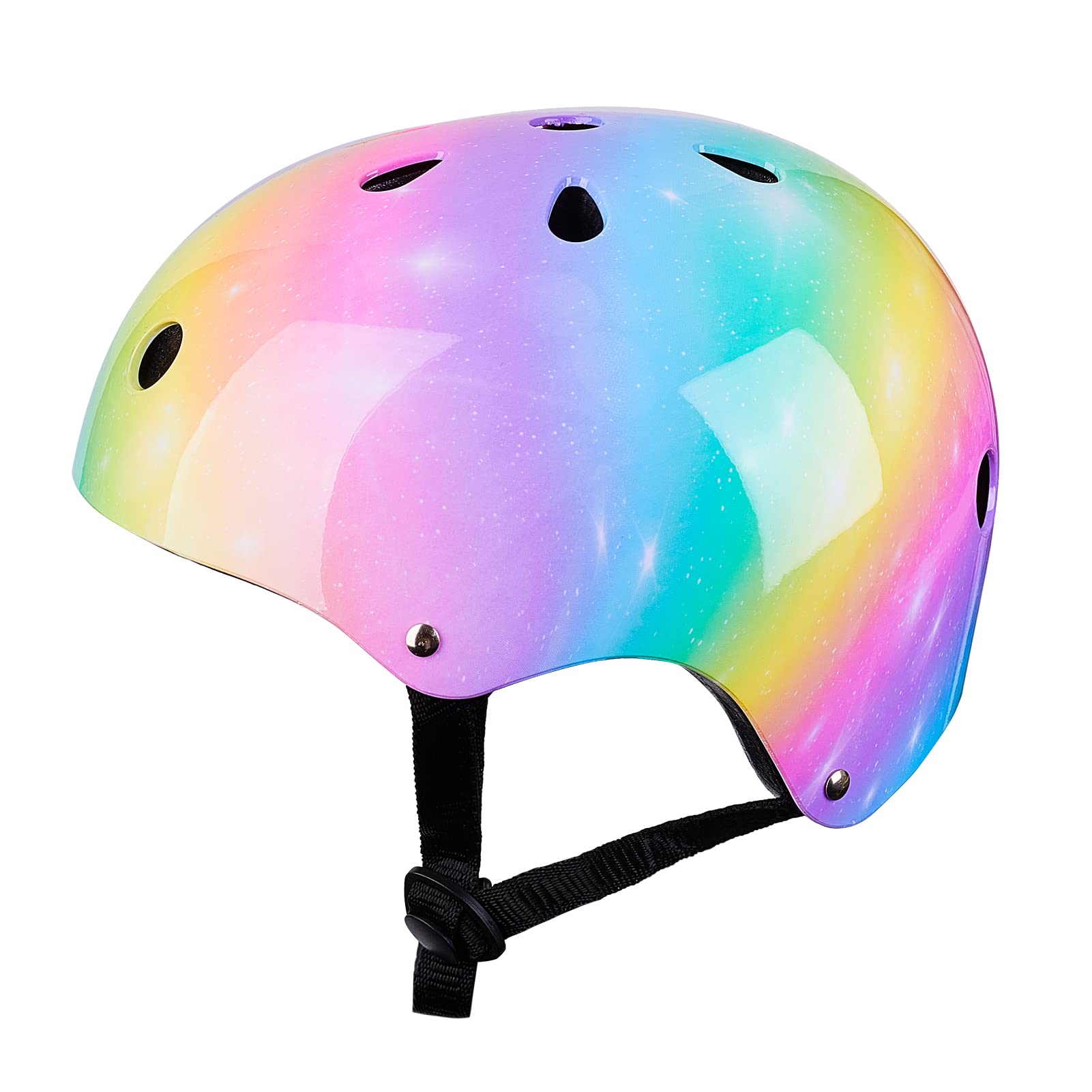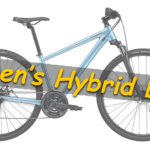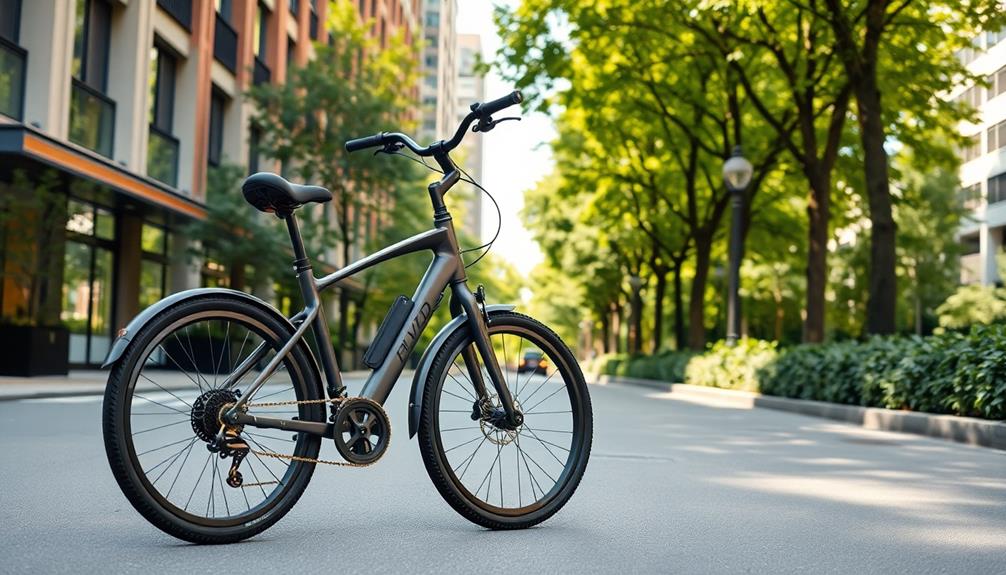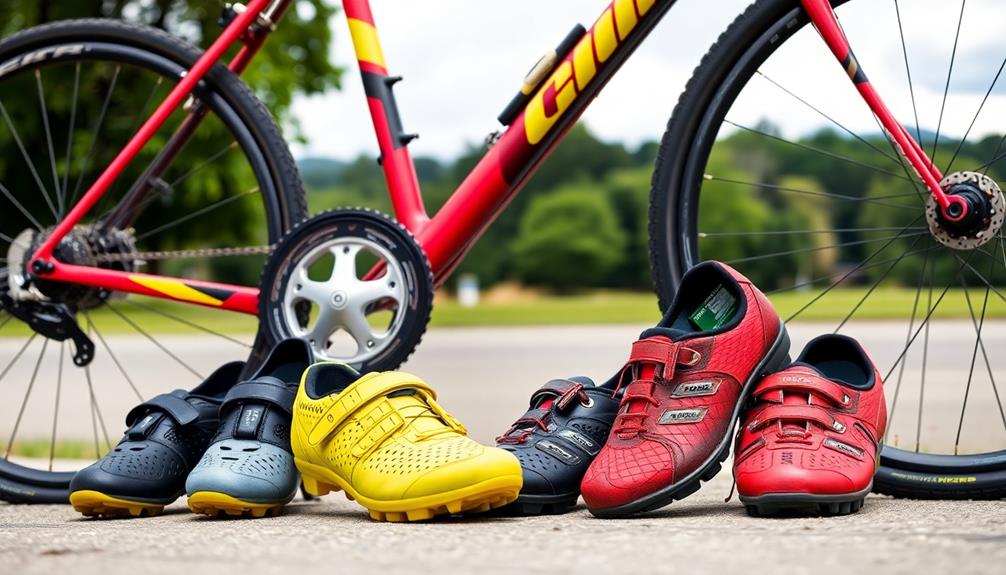When you're deciding on hybrid bike forks, it really boils down to your riding style. Suspension forks absorb shocks from rough terrain, providing a comfy ride and enhancing grip, but they can slow you down and add weight. Rigid forks, on the other hand, are lighter and more efficient, especially on smooth roads. Your choice should align with whether you prioritize comfort over performance or vice versa. If you're unsure about what suits you best, you might want to explore the nuances and considerations that can guide your decision.
Key Takeaways
- Suspension forks enhance comfort on rough terrain but may lead to energy loss during climbs and limit efficiency.
- Rigid forks are lighter and provide better performance on smooth surfaces, making them ideal for road rides.
- High-quality suspension systems improve ride quality but can significantly increase overall bike cost.
- User preferences vary; some prioritize comfort from suspension, while others value direct feedback and handling of rigid forks.
- Consider your riding style and terrain before choosing; balance between comfort of suspension and efficiency of rigid forks is crucial.
Advantages of Suspension Forks
When it comes to hybrid biking, suspension forks offer notable advantages that can elevate your riding experience. These forks absorb shocks from uneven terrain, making them perfect for mixed surface riding. This is similar to how wood-burning stoves produce less smoke, enhancing the overall experience in their environment.
You'll notice a marked improvement in ride comfort, especially when tackling bumpy paths or rugged trails. With limited travel, typically between 60mm and 80mm, suspension forks strike a balance between comfort and pedaling efficiency, which is essential for a hybrid bike.
Higher-end models often come equipped with a lockout option, allowing you to stiffen the suspension for smoother surfaces, enhancing your pedaling efficiency. This feature guarantees you get the best of both worlds on varying terrains.
Additionally, suspension forks improve grip and stability, considerably reducing the chances of your front wheel sliding during cornering on rough paths.
Using suspension can also lessen fatigue on your hands and arms during longer rides, enabling you to enjoy your adventure without discomfort.
Disadvantages of Suspension Forks

Despite their benefits, suspension forks come with several disadvantages that can impact your riding experience. One major drawback is that they can lead to energy loss during pedaling, especially on climbs, as the movement of the forks absorbs power that could otherwise propel you forward.
Additionally, the added weight of suspension components can make your bike feel sluggish, affecting handling and speed. This is somewhat similar to the considerations in heat pump efficiency where weight and performance play critical roles in overall system effectiveness.
Here are some key disadvantages of suspension forks:
- Increased weight that can slow you down, potentially adding about 1.5kg to your bike.
- Limited performance on smooth surfaces if your model lacks a lockout feature, hindering efficient pedaling.
- Need to compensate for the lack of suspension with wider tires, which adds even more weight.
- Overall riding experience may feel less responsive compared to bikes with rigid forks.
Considering these factors, if you're focused on performance and efficiency, especially for road riding, you might want to think critically about whether suspension forks are the right choice for your hybrid bike.
Balancing comfort with performance can be tricky, and understanding these disadvantages can help you make an informed decision.
Rigid Forks vs. Suspension Forks
Choosing between rigid forks and suspension forks often comes down to the type of riding you'll be doing. If you're primarily on smooth roads or paved trails, a rigid fork is likely your best bet. They're lighter, offer better pedaling efficiency, and require less maintenance. In contrast, if your rides include rough terrain or mixed surfaces like dirt trails, a suspension fork can enhance your comfort and stability by absorbing shocks, making it ideal for hybrid bikes.
Here's a quick comparison to help you decide:
| Feature | Rigid Fork | Suspension Fork |
|---|---|---|
| Weight | Lighter | Heavier |
| Maintenance | Low | Higher |
| Efficiency | High on smooth surfaces | Moderate on rough terrain |
| Shock Absorption | None | Yes |
Understanding these differences can help you choose the right fork for your hybrid bike. If you value efficiency and minimal upkeep, a rigid fork shines. However, if comfort on varied terrain is your priority, you might lean towards a suspension fork, especially with the limited travel range of many hybrid bike options.
User Preferences and Experiences

For many cyclists, personal preferences and experiences play an essential role in deciding between rigid and suspension forks on their hybrid bikes. You might find that the type of terrain you ride on greatly influences your choice.
Many riders appreciate the stiffer ride provided by rigid forks, especially on smooth surfaces. It enhances energy efficiency and responsiveness, which can elevate your cycling experience. Additionally, just as a comfortable farmhouse aesthetic is essential for a cozy home, finding the right fork can considerably impact your comfort on the bike.
Consider the following insights from user preferences:
- Rigid forks excel in performance, particularly during road rides.
- Some cyclists rarely utilize the suspension feature, questioning its necessity.
- Suspension can improve comfort on rough terrain but may lead to energy loss during climbs.
- Low-quality suspension systems on budget bikes can lead to dissatisfaction.
Ultimately, the choice between suspension and rigidity comes down to your riding style and comfort level.
If you prefer direct feedback and precise handling, rigid forks may be the way to go. However, if you often tackle bumpy paths and prioritize comfort, investing in quality suspension on your hybrid could enhance your rides. Your personal experiences will guide you in finding the perfect balance for your cycling adventures.
Cost and Value Considerations
When it comes to choosing bike forks, cost and value are essential factors that can influence your decision. You might find that cheap suspension forks can add unnecessary weight and create maintenance issues, while high-quality suspension systems can greatly inflate your bike's overall cost.
For general hybrid use, rigid forks often provide better value, enhancing performance and efficiency without the added complexity of suspension components. Engaging in fun and effective exercises, such as hula hooping, can also complement your cycling routine, helping to burn additional calories while improving core strength and stability hula hoop for weight loss.
If you're primarily riding in non-mountain biking scenarios, investing in quality suspension might exceed your bike's total cost, which isn't ideal for most casual riders. The cost-effectiveness of rigid forks makes them a smart choice for those who don't need advanced suspension features.
Many consumers mistakenly associate suspension with superior bike quality, leading to potential overspending on features that won't enhance their riding experience.
Frequently Asked Questions
Do I Need Suspension on a Hybrid Bike?
Whether you need suspension on a hybrid bike depends on your riding style and terrain. If you often ride on rough surfaces, suspension enhances comfort. For smooth roads, a rigid fork might offer better efficiency.
Is a Suspension Fork Necessary?
Think of your ride as a dance; the right fork leads the way. A suspension fork isn't strictly necessary, but it smooths out bumps and boosts comfort on rough paths. Choose based on your terrain and riding style.
Is It Better to Have Suspension on a Bike?
It depends on your riding style. If you enjoy tackling rough terrain, suspension can enhance comfort and control. However, for smooth roads, a rigid fork might offer better efficiency and less weight for longer rides.
When to Lock Out Suspension Fork?
Think of your bike's suspension like a dancer—graceful on smooth surfaces but ready to absorb shocks on rough paths. Lock out the fork when cruising on pavement, but release it for bumpy adventures to enhance stability.
Conclusion
In the end, choosing between suspension and rigid forks comes down to your riding style and preferences. Did you know that around 60% of mountain bikers prefer suspension forks for their ability to absorb shocks? If you're tackling rough terrain or steep descents, a suspension fork might be your best bet. However, if you're cruising on smoother paths, a rigid fork could save you weight and money. Either way, make sure it aligns with your biking needs!
















